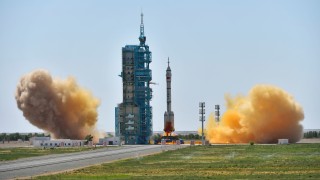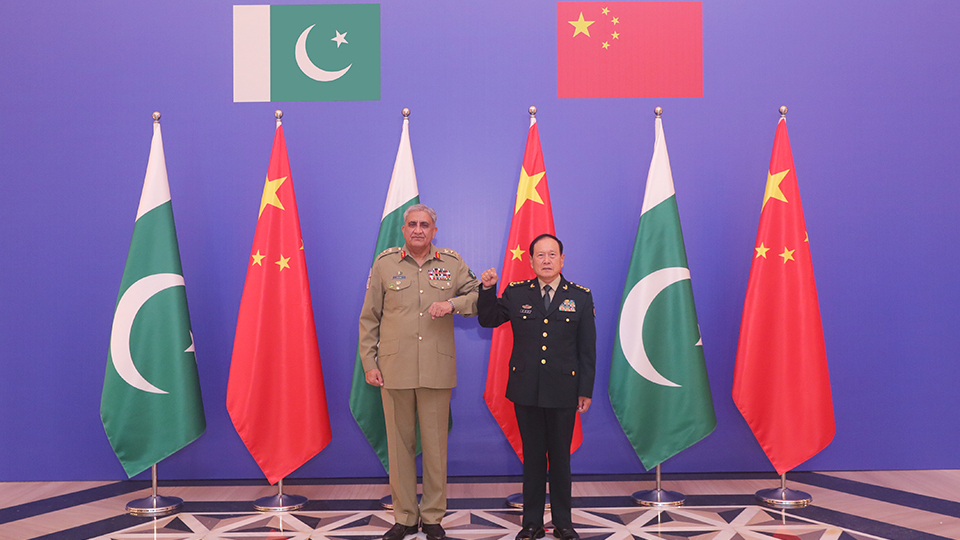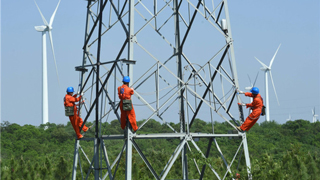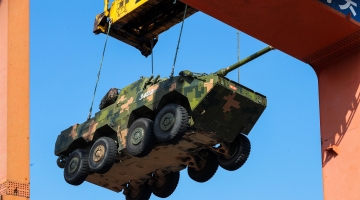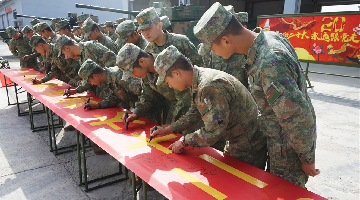
By Jin Yinan
Recently, the US-Germany relations got tense due to their disagreements on the issue of NATO military spending. Once a loyal ally of the US, Germany surprisingly chose to openly offend the US on NATO military spending. This not only irritated the Trump administration, but also made many confused: why did Germany dare to pick a quarrel against the US?
In the past, West Germany and the US cooperated with each other for they both saw the Soviet Union as an imaginary enemy, and a large amount of US troops have since been stationed in Germany. After the unification of Germany and the collapse of the Soviet Union, Germany’s economy were recovered and developed rapidly, and its relations with Russia have considerably improved. Russian President Vladimir Putin and German Chancellor Angela Merkel maintain close personal friendship, while they often speak German in private conversations. For nowadays, Russia is no longer a major threat to Germany, and it seems more and more unnecessary to keep US troops stationed in Germany.
In addition, after many years of stationing troops in Germany, the US has neither undertaken the expenditures for the reconstruction of facilities around its military bases as agreed by both sides, nor paid compensation for the inconvenience it has caused in local neighborhoods. Furthermore, after Donald Trump took office, on several occasions he urged Germany to increase its contribution to NATO military spending under the pretext that it needed the protection from US troops stationed there. He even demanded an exorbitant price, from the current 500 million euros to 2.5-3 billion euros at one stroke.
Washington threatened that it would take necessary measures such as moving its troops stationed in Germany to Poland, if Berlin didn’t meet its requirements. However, Germany didn’t yield a step, but unveiled a plan to cease paying for NATO military spending and announced that it would be even better if the US “could take away their nuclear bombs too” when retreating its troops. Would the US really move its troops stationed in Germany to Poland?
Actually, Poland has a relatively weak economy and cannot afford high defense spending of US troops. Trump is clearlly aware of this. In addition, Poland is far away from the central area of Europe and close to Russia. It has been a proven fact that the US military always lets its allies fight in the frontline once military conflicts occur. If the US stations its troops in Poland, the US troops had to been engaged in battles once a war broke out with Russia. For the US military, the risks outnumber the gains.
But for Germans, things are quite different. Both Germany and France are de facto leaders of the European Union (EU), and play important roles in NATO. Germany and France have established a close relationship. While France has long been out of the US control, Germany basically obeys the US due to the presence of US troops there. If the US was not able to extort enough money from Germany, it would certainly continue to keep its military forces there.
So during his meeting with Merkel at the recent G7 Summit, Trump stated that he would visit Germany as soon as possible and that he has German ancestry. This marked an about-face from his previous stance. In his eyes, Germany is an “easy meat” that the US should never let go. He tried to extort Germany, but if failed, he would take a step back. Nevertheless, the US would never retreat its troops in Germany.
However, it seems that Germany and France are becoming increasingly intolerant to the US military. The two countries refused to buy F-35 stealth fighter jets from the US, and planned to build Europe’s own aircraft carriers. The European Parliament allotted 10 billion euros as the initial capital for building a European army.
The breaking-up trend between Europe and the US has been existed for some while, and is becoming more and more apparent. During the Cold War, Europe turned to the US for protection, putting itself under the control of NATO. Nowadays, Russia’s threat to Europe has been greatly reduced as the relationship between the two sides has significantly improved. For instance, nearly 90% of natural gas used in Germany is imported from Russia, and the same happens in Switzerland, France and Italy. Although the US warned those countries repeatedly, the general trend seems inevitable and unstoppable.
As the leading countries in Europe, Germany and France use their actions to imply that “Europe belongs to Europeans,” although they never say so literally. In fact, this is more than just a matter concerning US troops stationed in Europe. Not long ago, the governor of the Bank of England said publicly that the US dollar’s global status needed to be changed. The euro has long wanted to increase its global influence, with an intention to gradually replace the US dollar in the international settlement system. Taking the conflict between the US and Iran as an opportunity, Germany and France jointly launched a trading settlement program with Iran to bypass the US dollar.
Such measures as promoting trading settlement with the euro, developing its independent aircraft carrier fleets and building the fifth-generation and sixth-generation fighter jets by itself all demonstrate a political intention that Europe wants to control its own destiny. This intention is beyond reproach; after all no one wants to be a slave at others’ service. It is natural for Europe to have such an intention.
The US always attempts to control other countries. To increase its global influence, it breaks international rules by extorting and alienating others even its allies. However, it will become harder and harder for Washington to “make America great again” through such measures.
(The author Jin Yinan is a professor of the PLA National Defense University.)
Disclaimer: This article is originally published on military.cnr.cn, and is translated from Chinese into English and edited by the China Military Online. The information, ideas or opinions appearing in this article do not necessarily reflect the views of eng.chinamil.com.cn.

